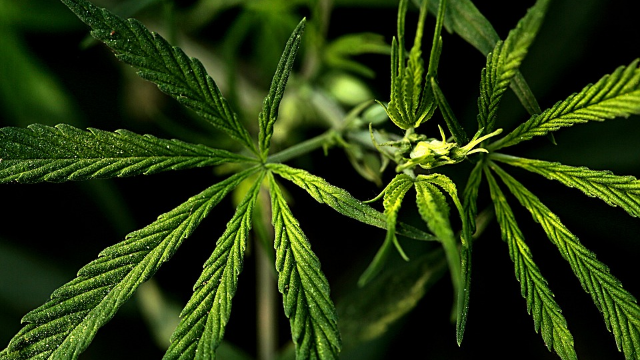Flavonoids Found In The Cannabis Plant Are 30 Times More Effective Than Aspirin

Although cannabis plant contains hundreds of different compounds, only two cannabinoids – THC and CBD – dominate the discussion about the medicinal properties of cannabis. The reality is, however, that not only these compounds are responsible for the medical use of cannabis. Other cannabinoids and compounds found in the cannabis plant can also have equally powerful analgesic properties.
Flavonoids seem to be another important issue in the fast-growing cannabis world. Why are they so important? Because despite the fact that research is still in its infancy, the study about cannaflawin-A and cannaflawin-B (flavonoids from marijuana) already raised hopes that one day we will have a completely new way of treating pain. Many producers like Enliven Essentials started to infuse CBD Products like liquids and oils with flavonoids not only for their medical properties, but also for their amazing taste.
Flavonoids are chemicals that are found in all plants (not just cannabis) and are responsible for the pigment in fruits and vegetables. However, not all flavonoids have medical properties, and scientists have been interested in them for some time now, because many of them have antioxidant properties. Very often, when some plant becomes a drug, it has something to do with flavonoids.
There are two flavonoids in cannabis, which have particularly strong anti-inflammatory properties, thanks to cannaflawin-A and cannaflawin-B. For example, they are 30 times stronger than aspirin.
The potential analgesic effect of cannaflawins was first discovered by Marilyn Barrett, a researcher from the School of Pharmacy, University of London in the 1980s. So why haven’t we heard more about their effectiveness? Since cannaflawins make up a small percentage of plant matter (0.014%) and if it works as an effective anti-inflammatory agent, you would need to consume a huge amount of cannabis.
The same is true about the red wine, which theoretically delays the aging of the body. The delay in aging is caused by the phenol in the grape skin. But even if it’s good for us (which has never been confirmed), we would need to consume about 40 litres a day to achieve a therapeutic effect.
However, the authors of the study have identified genes in cannabis that are responsible for the production of cannabis flowers, and this makes it possible to obtain cannabis flowers without actually having to grow the plant. With the help of the University of Guelph, the process was quickly patented. Shortly afterwards, the medical cannabis company Anahit International acquired a patent for research into the development of commercial cannabis products. Scientists are cautious about the potential effectiveness of cannaflawins, but given the opioid crisis, the possibility of using an alternative method of pain treatment is really interesting.
“The interesting thing about cannabis molecules is that they actually stop inflammation at source,” says Tariq Akhtar, Assistant Professor of Molecular and Cell Biology at the University of Guelph.
Regular use of non-steroidal anti-inflammatory drugs and other OTC analgesics (ibuprofen) is associated with a higher risk of kidney disease and stomach problems. Even analgesics such as paracetamol, when used intensively and in combination with alcohol, can lead to liver problems. Scientists believe that natural cannabis compounds can be a new way to treat pain. With all this in mind, you can ask why no one used Marilyn Barrett’s original discovery in the 1980s.
The reason for the delay may have been insufficient technology and the legal status of cannabis. Scientists had trouble finding funds to study illegal substances, but that changed in 2017 when Canada legalised cannabis. Now that scientists have no problem finding funding for research, research into the medical properties of cannabis has accelerated, we can expect more interesting research soon.
